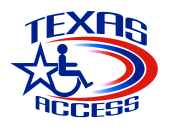In a historically significant move, Colorado will become the first state in the U.S. to require all state and local government websites to meet a set of yet-to-be-determined accessibility standards.
Until now, the ADA and Section 508 have been the laws championing the cause of web accessibility and the rights of disabled people at large.
Although state laws protecting the rights of people with disabilities are common, Colorado claims to be the first state to digitize those laws. Only 3% of more than 700 city websites met industry standards on PCs and mobile devices, according to a study by OpenCities and Monsido.

A Little About the ADA
The Americans with Disabilities Act of 1990 (ADA) is a non-discrimination law.
It ensures that all Americans with problems walking, seeing, hearing, talking, or any form of impairment whatsoever can access goods, and services such as transportation, education, employment opportunities, public accommodations, communications, and government activities. This civil rights law prohibits discrimination against individuals with disabilities and ensures these people have the same rights and opportunities as everyone else.
Over the years since its enactment, the ADA has been interpreted to include websites as places of public accommodation. Although the ADA wasn’t originally aimed at websites, it now covers accessibility on websites.
What Does the New Colorado Bill Entail?
The Colorado bill, sponsored by Democratic Rep. David Ortiz of Littleton (the first person who uses a wheelchair to serve in the Colorado General Assembly), shows the importance of underserved groups being represented in the legislative arm of government.
In July 2021, Colorado passed House Bill (HB) 21-1110, which requires state and local public entities to meet established website accessibility standards.
HB 21-1110 defines accessibility as:
“Perceivable, operable, and understandable digital content that enables an individual with a disability to access the same information, engage in the same interactions, and enjoy the same services offered to other individuals, with the same privacy, independence, and ease of use as exists for individuals without a disability.”
The bill known as House Bill 21-1110 adds language to strengthen current Colorado law related to protection against discrimination based on disability for persons with disabilities. The added provisions include:
- Prohibiting a person with a disability from being excluded from participating in or being denied the benefits of services, programs, or activities of a public entity or a state agency
- Clarifying that such prohibition includes the failure of a public entity or state agency to develop an accessibility plan and fully, on or before July 1, 2024, with accessibility guidelines established by the Office of Information Technology.
- Any Colorado agency with the authority to promulgate rules shall not promulgate a rule that provides less protection than that provided by the “Americans with Disabilities Act of 1990”.”
- The bill requires each state agency to submit a written accessibility plan to the office by July 1, 2022. The office shall then work collaboratively with the state agency to review sections related to accessibility standards to establish implementation methodology.
- State agencies must fully implement the sections that pertain to accessibility standards by July 1, 2024. State agencies that have not complied with the state’s laws concerning disability discrimination by July 1, 2024, are liable for the state’s penalties.
Why Is the HB-1110 Important?
It shows just how much can be accomplished when the proper representation is available. It’s not enough to promote the rights of disabled people, we must all work together to champion their cause because it’s simply the right thing to do.
City websites in the U.S. are considered to be the front page of all resident-facing city services. Cities that have included user-centric design elements, like prioritizing the most popular services at the top of the page, should be commended. We would like to see more city technology officials taking action like this to improve the general state of things for the disabled community.
The key to making a website good is not technology, but the people behind the site. The move towards a better website can be costly in terms of resources. Still, it also generates a return through increased traffic and engagement, as well as positioning the site as a trustworthy and reliable resource for your residents. If web teams want to remain relevant and valuable, they will need to be able to evolve and adapt to faster, more inclusive web experiences across various devices.
Closing Thoughts
People living in rural areas – far removed from the federal district courts in Denver – will also now be able to file ADA-style lawsuits in state court. While we hope that lawsuits don’t have to be filed before websites are made accessible, this bill marks a long-awaited turning point in the advocacy for digital accessibility.







